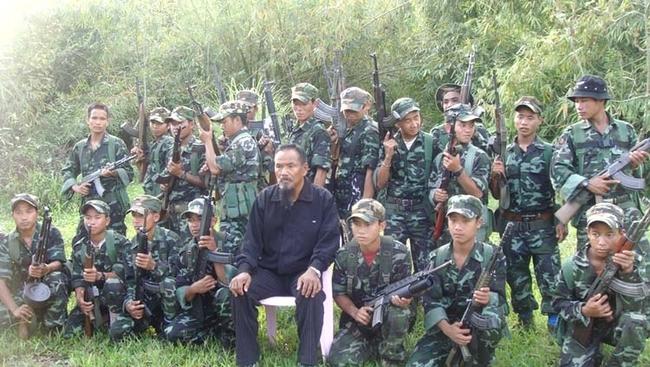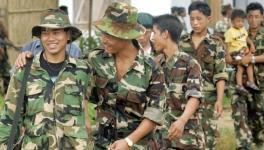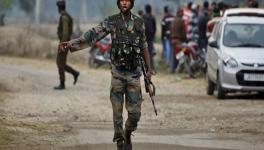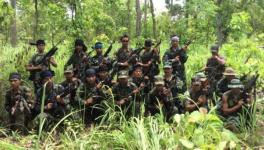What the NSCN(K) Coup Could Mean

According to the reports, the Nationalist Socialist Council of Nagaland (Khaplang) [NSCN(K)] has witnessed a coup. Through an emergency session, the now former chairman of the organisation, Lieutenant General Khango Konyak, was impeached and replaced by Yung Aung. Konyak had replaced the organisation's patriarch, Shangwang Shangyu Khaplang as the chairman after the latter's demise in 2017. Konyak, at the time, was a veteran in the Naga political movement and the senior-most leader in the NSCN(K). Aung, who will replace Konyak is late Khaplang's nephew. The communique, which was referred to in the press, mentioned that Konyak was impeached for his practice of taking decisions unilaterally which violated the organisation's constitution. The communique also mentioned that recognising Konyak's contributions towards the Naga cause, he will be allowed to leave peacefully and that he will still be entitled to all the honours. The change of guard has several underlying implications for the Naga movement as well as for the ongoing talks on both sides of the international border.
Read more: Nothing to Show: Three Years of the Framework Agreement
The Irrawaddy reported on July 30 this year that Konyak was ailing. They also mentioned that the Tatmadaw was preventing him from travelling outside the valley where the NSCN(K) as well as the other members of the United National Liberation Front for Western South East Asia's (UNLFW) camps are located near Taga in the Hukawng Valley, Sagaing division in Myanmar. This would present itself as a twofold problem for the NSCN(K), as on the one hand, they would have to wonder whether the ailing Konyak would be able to manage the movement as the chairman of both the NSCN(K) as well as the UNLFW. On the other hand, there was always the threat that he, along with his close aides of Indian Naga origin, would accept a 'peace deal' with the Government of India in exchange for medical treatment.
Read more: Indo-Naga Talks: The Difficult Road to Peace
Konyak, being a Konyak Naga from Mon district in Nagaland, was presented by some sections in the Indian press as an opportunity for the Government of India to bring the NSCN(K) on board for the Framework Agreement. This was in contrast to the former head of the organisation, Khaplang who was a Heimi Naga from Myanmar. By entrusting NSCN(K)'s leadership back in the hands of a Myanmar-born Naga, the party command has effectively nullified any opportunity for the Indian State to officially negotiate with the NSCN(K).
Read more: Sovereignty, Integration and the Naga Peace Process
Another aspect is the relationship that the NSCN(K) had with the Tatmadaw. Khaplang had reached an 'understanding' with the Tatmadaw in 2001. In 2012, Khaplang signed a written accord with the Myanmar Government. In 2015, the NSCN(K) was barred from joining the nationwide ceasefire agreement in Myanmar, as their territorial claims spanned across the international border. They had also participated as observers in the 21st Century Panglong conference held in Napyidaw in July this year. Notwithstanding the skirmishes on the Indian side of the border, the Tatmadaw's view has been to allow the NSCN(K) to operate as a provincial government around Taga in the Sagaing division. This would enable the Tatmadaw to focus on the other conflicts in the North and East of the country – the Kachin, Wa, Shan and Karen insurgencies.
The communique from the NSCN(K) mentioned that Konyak would be allowed safe passage out of the area, and that he would still be entitled to honours considering his years of service to the Naga movement. This, on another note, could also be an indication that Konyak's impeachment was done to allow him to seek medical treatment while reducing the possibility of him being harassed by the state forces or intelligence agencies from either country.
Read more: Twin Pressures Towards Unifying the People of the Northeast
What observers of these developments should wait for is any indication that the change of guard has jeopardised the UNLFW. Since Konyak was also the chairman of the UNLFW, the position may open up. On the other hand, retaining Konyak as the UNLFW's chairman may become unacceptable to the NSCN(K) under Yung Aung. However, elevating Yung Aung to head the UNLFW may turn out to be unacceptable to the other constituent members – the United Liberation Front of Assam (Independent); the National Democratic Front of Bodoland (Saoraigwra); the Kamatapur Liberation Organisation – as well as the Coordination Committee – a grouping made up of Meitei armed political groups – who is extending moral support to the cause.
Get the latest reports & analysis with people's perspective on Protests, movements & deep analytical videos, discussions of the current affairs in your Telegram app. Subscribe to NewsClick's Telegram channel & get Real-Time updates on stories, as they get published on our website.

















